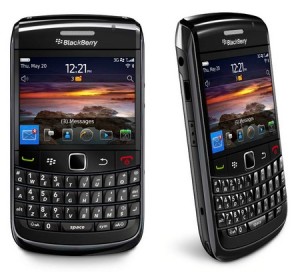International firms are keen to enter Libya's telecommunications sector, one of the major business opportunities created by last year's uprisings in the Arab world. But they will only find out how they can do so after the war-torn country's first free elections in June.
Foreign investment in the sector is much needed after a fifth of Libya's transmitter stations were destroyed in last year's revolution ending Muammar Gaddafi's 42-year dictatorship.
The country of 6 million people remains in political turmoil; last week's inter-tribal fighting left nearly 150 dead. But etisalat, Qatar Telecom (Qtel) and Saudi Telecom have all expressed potential interest in Libya.
Gaddafi isolated Libya's economy from much foreign competition, reserving licences and contracts for his own circle, which makes the market attractive to new entrants. There are only two mobile operators, Al Madar and Libyana, which are both state-owned.
High median income
Libya's huge energy reserves mean median incomes are much higher than for neighbouring countries. And acquisition opportunities in telecommunications have dwindled globally in recent years, making Libya more alluring.
"At least three or four" foreign operators have expressed interest in entering Libya, Communications Minister Anwar Al Feitori told Reuters, "but we'll leave it to the next government to decide on that."
Elections for a national assembly will be held in June to replace the interim government, which lacks a mandate to make major decisions about the economy. Feitori said Libya would open its telecommunications market to fresh competition "when we have the rules for the competition and when we have the right infrastructure for that as well". He said about 20 per cent of the sites operated by Al Madar and Libyana were damaged, with the most severe destruction in Zlitan, Misrata and Sirte, scenes of heavy fighting during the eight-month war. Each firm has about 1,000 base stations. The damage, which was estimated by the Gaddafi government to total hundreds of millions of dollars, meant mobile networks in the east and west of the country were cut off from each other when the conflict ended.
Big demand
"We worked on getting the services back to normal and now we're almost there. There is a big demand in telecom services," Al Feitori said. Internet users have doubled since the revolution, he added; Facebook played a major role in mobilising opposition to Gaddafi.
In other African markets, fierce competition and multiple operators have left newer entrants struggling to compete.
"Libya isn't like that and so would be attractive to foreign operators, both in terms of buying into the existing players or from buying a third licence," said Peter Lange, an analyst at BuddeComm in Sydney.
"Libya is one of the wealthiest markets in Africa, similar to South Africa and Gabon in terms of GDP per capita, and there's a lot of money to be made in providing broadband and internet services."
Libya's mobile phone penetration, the ratio of phones to the population, rocketed from under 1 per cent in 2001 to 172 per cent in 2010, according to official data. But many analysts doubt the figures, believing they may have been invented by officials in the former regime.
(Source: Gulf News)





